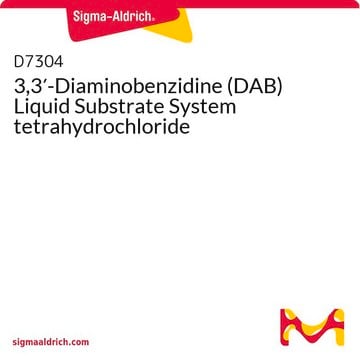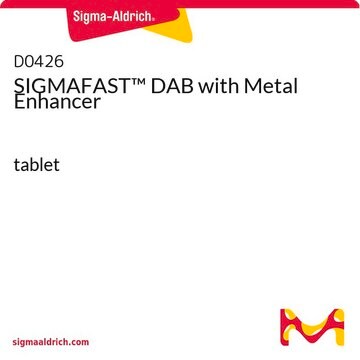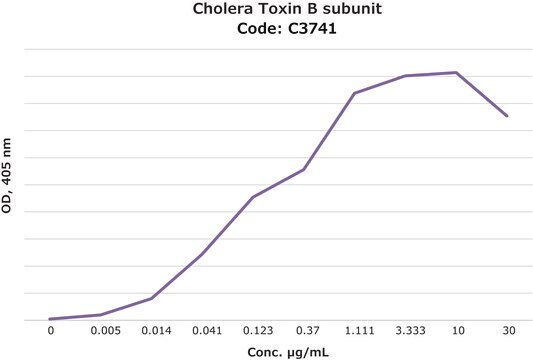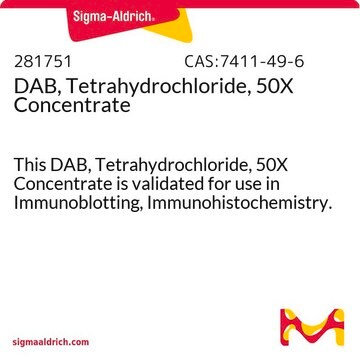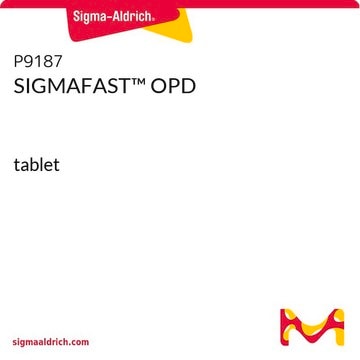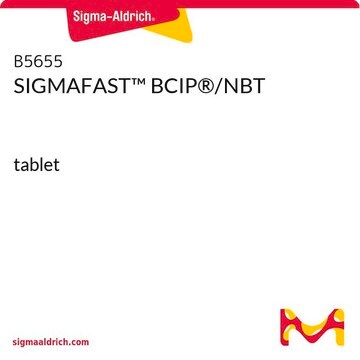D4168
SIGMAFAST™ 3,3′-Diaminobenzidine tablets
SIGMAFAST™, tablet
About This Item
Recommended Products
Product Name
SIGMAFAST™ 3,3′-Diaminobenzidine tablets, tablet, To prepare 1 mL
form
tablet
solubility
deionized water: 1 mL, clear, pink
storage temp.
−20°C
SMILES string
Nc1ccc(cc1N)-c2ccc(N)c(N)c2
InChI
1S/C12H14N4/c13-9-3-1-7(5-11(9)15)8-2-4-10(14)12(16)6-8/h1-6H,13-16H2
InChI key
HSTOKWSFWGCZMH-UHFFFAOYSA-N
Looking for similar products? Visit Product Comparison Guide
Application
Reconstitution
Legal Information
signalword
Danger
Hazard Classifications
Carc. 1B - Eye Dam. 1 - Flam. Liq. 2 - Muta. 2 - Ox. Liq. 3 - Skin Irrit. 2 - STOT SE 3
target_organs
Central nervous system
Storage Class
5.1B - Oxidizing hazardous materials
flash_point_f
53.6 °F - closed cup
flash_point_c
12 °C - closed cup
Choose from one of the most recent versions:
Already Own This Product?
Find documentation for the products that you have recently purchased in the Document Library.
Customers Also Viewed
Articles
NBT-BCIP substrate system aids in western blotting and immunohistological staining, producing a blue-purple insoluble end product.
Our team of scientists has experience in all areas of research including Life Science, Material Science, Chemical Synthesis, Chromatography, Analytical and many others.
Contact Technical Service

